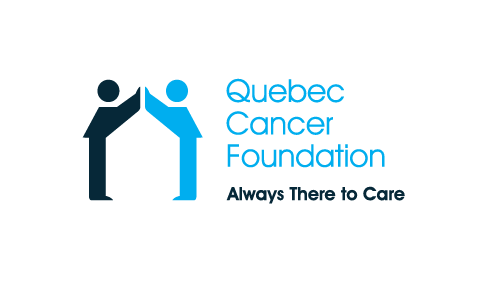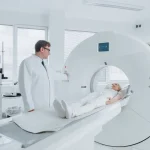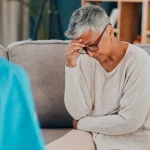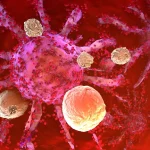Anxiety and depression
Some people experience symptoms of anxiety and depression during treatment.
This may be caused by the disruption in daily routine, fatigue or by feelings associated with the illness.
- Anxiety: an emotional or physiological reaction to known or unknown events, ranging from a normal response to extreme dysfunction. It can affect decision-making, adherence to treatment, or the conduct and quality of life.
- Depression: a range of feelings and emotions ranging from ordinary sadness to chronic despondency.
Life situations that increase the risk of anxiety and depression
- Financial worries.
- History of anxiety or depression.
- Living alone.
- Being socially isolated.
- Being under the age of 30.
- Being a woman.
- Waiting for test results.
- Experiencing withdrawal (tobacco, alcohol, drugs).
- Having dependent children.
- Living with advanced or recurrent disease.
- Lack of physical activity.
Symptoms that increase the risk of anxiety and depression
- Fatigue.
- Pain.
- Sleep disorder.
- Breathlessness.
Signs and symptoms of anxiety
- Episodes of sudden fear, discomfort or intense anxiety with or without panic attacks.
- Difficulty or inability to perform daily activities.
- Trouble sleeping.
Signs and symptoms of depression
- Feelings of fatigue and exhaustion.
- Difficulty or inability to perform daily activities.
- Loss of interest in usually enjoyable activities.
- Loss of appetite.
- Powerlessness.
- Black or suicidal thoughts.
- Experiencing, for two weeks or more:
- depression or loss of pleasure;
- a sense of worthlessness;
- insufficient or excessive sleep;
- a sense of guilt;
- inability to think or concentrate;
- weight gain or weight loss.
Helpful hints: anxiety and depression
- Use adaptation strategies that have proven effective for overcoming difficulties in the past.
- Express your concerns with relatives and friends or a healthcare team member.
- Look for resources and services that can help, in consultation with the healthcare team, community associations and information and listening services.
- Be open to support from relatives and friends: helping with housework, accompanying you to appointments, babysitting, etc.
- Join a support group.
- Do some moderate exercise, such as walking.
- Participate in activities that assist in anxiety management (e.g. relaxation, yoga, visualization, listening to music, adapted readings, breathing techniques and massage therapy).
- Get professional support by meeting with your social worker or healthcare team psychologist.
Helpful hints: depression
- Immediately consult a family doctor or a healthcare team professional or go to emergency if these helpful hints are ineffective, if symptoms persist or intensify, or are accompanied by dark or suicidal thoughts.
- Use telephone psychosocial support resources that are available day and night, such as Tel-Aide and the Suicide Prevention Center.































